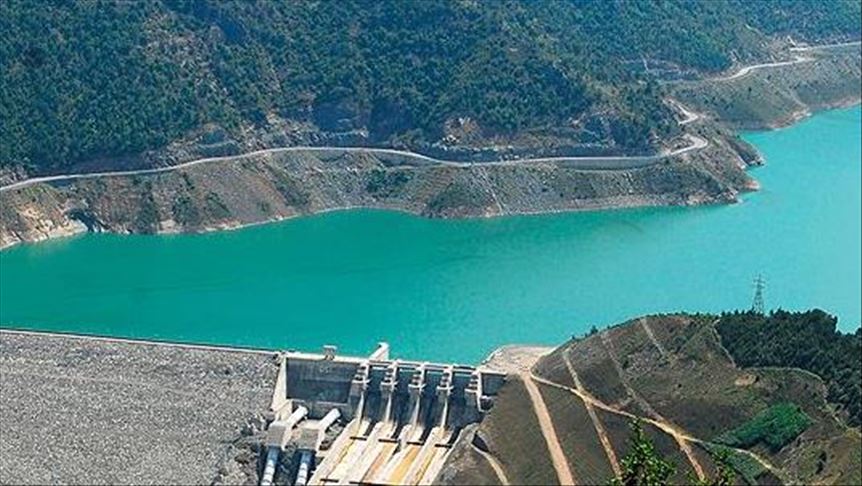Water increasing factor in global conflicts
'There are growing demands for water resources because of growing populations as well as economies,' says expert

ANKARA
The water crisis is one of the most important problems the world faces and will be an increasing factor in conflict, a freshwater policy expert told Anadolu Agency.
"Wars start for many complicated reasons, almost never a single reason, but water will be an increasing factor in conflict if we do not work to reduce that risk," said Peter Gleick, co-founder of Pacific Institute.
Responding to questions of the possibility on "water wars" in the near future, Gleick, who is also a member of the U.S. National Academy of Sciences, said his concern is growing violence associated with water scarcity and control, as the world already sees growing violence over water resources.

According to the Pacific Institute's water conflict chronology, 466 out of 926 conflicts related to water throughout recorded history have occurred in the past decade, while 220 were recorded in the first decade of the millennium.
The group is an American non-profit research institute created in 1987 to provide independent research and policy analysis on issues of development, environment and security, with a particular focus on global and regional freshwater issues.
Gleick said people face many environmentally-induced problems, such as climate change and threats to water resources, which already turned into crisis.
"Even without climate change, we know that there are growing demands for water resources because of growing populations and economies, and we know that there are many sources of pollution of our water resources that have not been cleaned up, including both human and industrial wastes", he said, adding that water is naturally poorly distributed around the world, with wet and dry areas.
Touching on the importance of water in general, Gleick mentioned water is connected to everything people care about, including human health and ecology, agriculture, industrial production and energy.
According to a UN report in 2019, 2 billion people live in countries experiencing high water stress and 2.2 billion lack access to safely managed drinking services while over half of the global population lack safely managed sanitation services.
Need for keeping water in safe
"Water is also at the heart of adaptation to climate change, serving as the crucial link between society and the environment," according to the UN.
Gleick stressed negative effects of climate change on water cause serious problems for humans and nature.
"Climate changes, now caused by humans, affect every aspect of our water systems, changing rainfall and snow patterns, increasing the severity of droughts and floods," he said.
He said human-induced climate change also increases the demand for water as temperatures rise and changes water quality which leads to the increasing trend of conflict or violence for water resources around the world.
Responding to a question on what should be done on the governmental level to keep water resources safe, he suggested, as required by the UN Sustainable Development Goals, governments should meet basic needs for safe water and sanitation.
"Governments also must set good water quality standards to protect human and ecological health. And all governments must participate in global efforts to cut emissions of greenhouse gases that cause climate change and worsen water and other problems," he said.
Defining the suggestions as "critical roles" for governments to keep water clean and safe, he added that cooperation between authorities, working diplomatically to share upstream and downstream in a fair manner are also an important task.
Anadolu Agency website contains only a portion of the news stories offered to subscribers in the AA News Broadcasting System (HAS), and in summarized form. Please contact us for subscription options.


